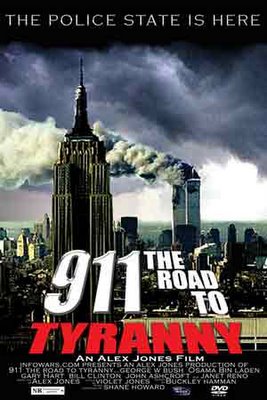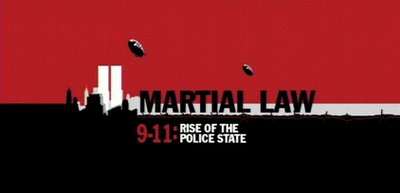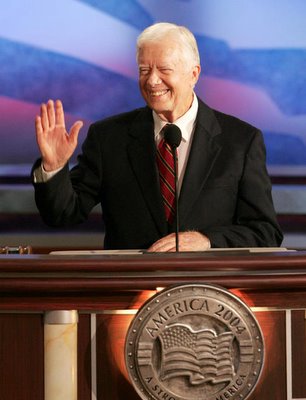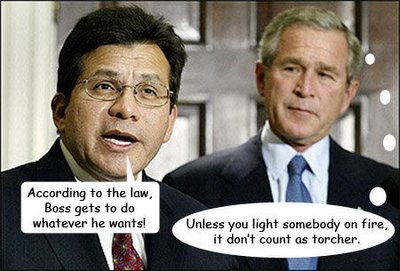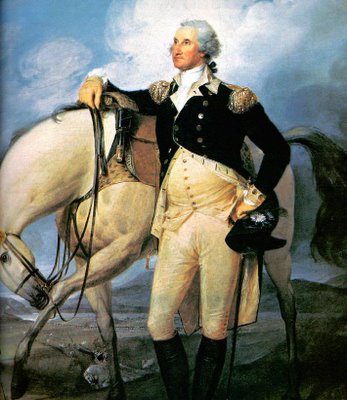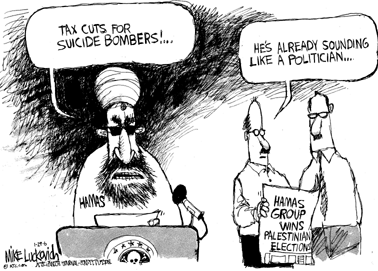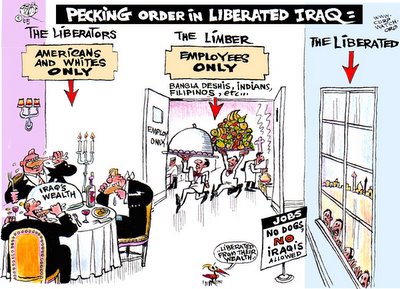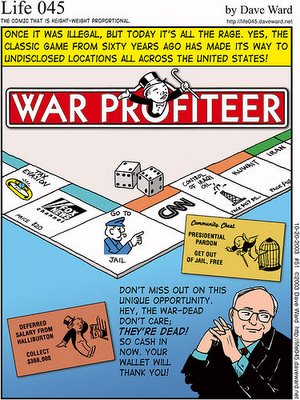
Yahoo! News
40 States Re-Examining Eminent Domain
By ROBERT TANNER, AP National Writer 1 hour, 16 minutes ago
LONG BRANCH, N.J. - The city wants Anna DeFaria's home, and if she doesn't sell willingly, officials are going to take it from the 80-year-old retired pre-school teacher.
In place of her "tiny slip of a bungalow" — and two dozen other weathered, working-class beachfront homes — city officials want private developers to build upscale townhouses.
Is this the work of a cruel government? Or the best hope for resurrecting an ocean resort town that is finally showing signs of reviving after decades of hard times?
Echoes of the debate are happening across the country, after a U.S. Supreme Court decision brought new attention to governments' ability to seize property through the tool of eminent domain. Some 40 states are re-examining their laws — with action in Congress, too — after the court's unpopular ruling.
"We thought this was going to be our home forever," said DeFaria, sitting in a kitchen cozy with photos of children and grandchildren, quotes from the Bible and a game of Scrabble that she plays against herself. "Now they want to take it away. It's unfair, it's criminal, it's unconstitutional."
Not according to the Supreme Court. In a 5-4 ruling last June that was greeted with widespread criticism, the court found that New London, Conn., had the authority to take homes for a private development project.
The Constitution says governments cannot take private property for public use without "just compensation." Governments have traditionally used eminent domain to build public projects such as roads, reservoirs and parks. But for decades, the court has been expanding the definition of public use, allowing cities to employ eminent domain to eliminate blight.
The high court, in its ruling, also noted that states are free to ban that practice — and legislators around the country are thinking about whether they should do just that.
New Jersey state Sen. Diane Allen, with bipartisan support, is pushing for a two-year ban on all eminent domain actions and for a bipartisan study group to re-examine its use in New Jersey.
"Right now government, I think, is using eminent domain to take people's private properties and hand it over to another owner," said Allen, a Republican. "It's really putting a hole in the American dream. Ownership of private property plays such a large role in that dream."
After the court ruling, four states passed laws reining in eminent domain. Roughly another 40 are considering legislation. In Congress, the House voted to deny federal funds to any project that used eminent domain to benefit a private development, and a federal study aims to examine how widely it is used.
The Washington-based Institute for Justice, a libertarian advocacy group that worked for homeowners in the New London case and in Long Branch, argues that state laws should be changed so property can only be seized for public uses like a park or a school — not urban redevelopment that benefits private developers.
Redevelopment usually depends on defining an area as "blighted" or a "slum," though definitions are vague, said Bert Gall, an attorney with the institute. Criteria can include a building's age, lack of compliance with building codes, even the size of a yard.
Abuses are widespread, Gall said, claiming that over a five-year period ending in 2002, more than 10,000 properties were threatened by eminent domain.
Municipal leaders across the country are pushing back, arguing that it's false to claim eminent domain is widely abused and warning that an emotional backlash to the court ruling is putting at risk an important tool that has helped turn around neighborhoods including Baltimore's Inner Harbor and New York's Times Square.
Elected officials have difficult decisions to make, and often must balance a community's needs with a few individuals, said Don Borut, executive director of the National League of Cities.
The plight of homeowners is hard to ignore, he said. "But at the same time ... there are hundreds if not a couple of thousand faces of people you don't see, of people of all levels of income who as a result of the economic development will get jobs," he added.
In Long Branch, there's no doubt the city needed to do something — a comeback wasn't happening on its own, Mayor Adam Schneider said.
"Most people wouldn't walk down those streets anymore. The worst neighborhood in our city was along our oceanfront. And that's been reversed," he said. Since the redevelopment effort began in earnest in 2002 after a decade of planning, new shops and homeowners have moved in, and new sidewalks have been installed — along with a new boardwalk, parks and an ice-skating rink, he said.
"What you do is you've improved your city, you've gotten rid of decrepit housing, you've created jobs," Schneider said. "It's easy to play it out as the city is cruel and government is stealing your property. I'm used to it. ... But this has reversed the decline that's been going on in Long Branch for more than 50 years."
Already, people are coming to new shops along the central waterfront, where the old pier burned down back in 1987. Rows and rows of new, sand-colored condominiums shadow DeFaria's one-story home when the afternoon sun sinks low.
DeFaria said she was offered $325,000 for the home she and her late husband bought in 1960 for $6,400. Where could anyone buy a waterfront view on the Jersey coast for that amount of money now?
But it's not the money, she said: $1 million wouldn't convince her. "They're taking my home away — not my house. My home. My life."
* Email Story
* IM Story
* Discuss
* Printable View
RECOMMEND THIS STORY
SOURCE - http://news.yahoo.com/s/ap/20060205/ap_on_re_us/seizing_property
(...)
The Washington Post
Rumsfeld Offers Strategies for Current War
Pentagon to Release 20-Year Plan Today
By Josh White and Ann Scott Tyson
Washington Post Staff Writers
Friday, February 3, 2006; A08
The United States is engaged in what could be a generational conflict akin to the Cold War, the kind of struggle that might last decades as allies work to root out terrorists across the globe and battle extremists who want to rule the world, Defense Secretary Donald H. Rumsfeld said yesterday.
Rumsfeld, who laid out broad strategies for what the military and the Bush administration are now calling the "long war," likened al Qaeda leader Osama bin Laden to Adolf Hitler and Vladimir Lenin while urging Americans not to give in on the battle of wills that could stretch for years. He said there is a tendency to underestimate the threats that terrorists pose to global security, and said liberty is at stake.
"Compelled by a militant ideology that celebrates murder and suicide with no territory to defend, with little to lose, they will either succeed in changing our way of life, or we will succeed in changing theirs," Rumsfeld said in a speech at the National Press Club.
The speech, which aides said was titled "The Long War," came on the eve of the Pentagon's release of its Quadrennial Defense Review (QDR), which sets out plans for how the U.S. military will address major security challenges 20 years into the future. The plans to be released today include shifts to make the military more agile and capable of dealing with unconventional threats, something Rumsfeld has said is necessary to move from a military designed for the Cold War into one that is more flexible.
He said the nation must focus on three strategies in the ongoing war: preventing terrorists from obtaining weapons of mass destruction, defending the U.S. homeland and helping allies fight terrorism. He emphasized that these goals could take a long time to achieve.
Indeed, the QDR, mandated every four years by Congress, opens with the declaration: "The United States is a nation engaged in what will be a long war."
The review has been widely anticipated in Washington defense circles because of the dramatic changes in the U.S. military's global role since the last review in 2001. Adding to the high expectations is the fact that Rumsfeld and his team have now been in place for more than four years.
The QDR strategy draws heavily on lessons learned by the military from the wars in Iraq and Afghanistan and the worldwide campaign against terrorism, shifting the Pentagon's emphasis away from conventional warfare of the Cold War era toward three new areas.
First are "irregular" conflicts against insurgents, terrorists and other non-state enemies. Iraq and Afghanistan are the "early battles" in the campaign against Islamic extremists and terrorists, who are "profoundly more dangerous" than in the past because of technological advances that allow them to operate globally, said Deputy Defense Secretary Gordon R. England in an address on Wednesday.
The QDR also focuses on defending the U.S. homeland against "catastrophic" attacks such as with nuclear, chemical or biological weapons. Finally, it sets out plans for deterring the rising military heft of major powers such as China.
The strategic vision outlined in the QDR has won high marks from defense analysts for diagnosing the problems the U.S. military will likely face. However, it is less successful in translating those concepts into concrete military capabilities, the analysts say.
The review does not dramatically change the "force construct" -- the set of world contingencies that the U.S. military is expected to be able to deal with. The most important change is the recognition that U.S. forces may have to carry out long-term stability operations, or surge suddenly to a world hot spot. There are not "huge tectonic shifts," said Adm. Edmund P. Giambastiani, vice chairman of the Joint Chiefs of Staff, in an address Wednesday.
The strategy does call for devoting resources to accelerate a long-range strike capability directed at hostile nations, and for new investments aimed at countering biological and nuclear weapons -- such as teams able to defuse a nuclear bomb. But it makes relatively minor adjustments in key weapons systems, with the biggest programs such as the Joint Strike Fighter and the Army's Future Combat Systems escaping virtually unscathed. This leaves less room for investments in innovative programs and forces to address the types of problems that the QDR identifies, analysts say.
"A lot of tough choices are kicked down the road," said Andrew F. Krepinevich, executive director of the Center for Strategic and Budgetary Assessments.
One of the toughest battles facing the United States, Rumsfeld said yesterday, is recognizing the seriousness of the terrorist threat and the immediacy of fighting the nation's enemies. He said the task facing Western nations could be arduous, as terrorists operate in numerous countries around the world, hidden, and with the willingness to wait long periods between attacks. Military leaders and officials in the Bush administration have taken to calling the global war on terrorism the "long war," which defense experts say is a recognition that there is no end in sight.
"Dealing with the issue of terrorism and extremism is going to take a long time," said Robert E. Hunter, senior adviser at Rand Corp. and a former ambassador to NATO. "But we have to define success. You're never going to get rid of all terrorism."
Rumsfeld said he does not believe the war will end with a bang but, instead, with a whimper, "fading down over a sustained period of time as more countries in the world are successful," much as how democracy outlasted communism in the Cold War. He added that the early decades of the Cold War also brought confusion and doubt.
"The only way that terrorists can win this struggle is if we lose our will and surrender the fight, or think it's not important enough, or in confusion or in disagreement among ourselves give them the time to regroup and reestablish themselves in Iraq or elsewhere," he said.
© 2006 The Washington Post CompanySOURCE - http://www.washingtonpost.com/wp-dyn/content/article/2006/02/02/AR2006020202296_pf.html
(...)
Patrick Joseph Buchanan (born November 2, 1938), is an American author, syndicated columnist, and television commentator. In 2000, he ran for President of the United States on the Reform Party ticket. He had twice unsuccessfully sought the Republican nomination for president. He has written several books on his political and religious views.
He is also one of the founding editors of and main contributors to The American Conservative magazine.
SOURCE - http://en.wikipedia.org/wiki/Pat_Buchanan
Human Events Online
Immigration & Foreign Affairs
Bush Is Running Out of Alibis
by Patrick J. Buchanan
Posted Feb 03, 2006
"The road of isolationism and protectionism may seem broad and inviting, yet it ends in danger and decline," railed President Bush in his State of the Union. Again and again, Bush returned to his theme.
"America rejects the false comfort of isolationism. ...
"Isolationism would not only tie our hands in fighting enemies, it would keep us from helping our friends in desperate need. ...
"American leaders from Roosevelt to Truman to Kennedy to Reagan rejected isolation and retreat."
Why would a president use his State of the Union to lash out at a school of foreign policy thought that has had zero influence in his administration? The answer is a simple one, but it is not an easy one for Bush to face: His foreign policy is visibly failing, and his critics have been proven right.
But rather than defend the fruits of his policy, Bush has chosen to caricature critics who warned him against interventionism. Like all politicians in trouble, Bush knows that the best defense is a good offense.
Having plunged us into an unnecessary war, Bush now confronts the real possibility of strategic defeat and a failed presidency. His victory in Iraq, like the wars of Wilson and FDR, has turned to ashes in our mouths. And like Truman's war in Korea and Kennedy's war in Vietnam, Bush's war has left America divided and her people regretting he ever led us in. But unlike the world wars, Korea and Vietnam, Bush cannot claim the enemy attacked us and we had no choice. Iraq is Bush's war. Isolationists had nothing to do with it. To a man and woman, they opposed it.
Now, with an army bogged down in Afghanistan and another slowly exiting Iraq, and no end in sight to either, Bush seeks to counter critics who warned him not to go in by associating them with the demonized and supposedly discredited patriots of the America First movement of 1940-41. His assault is not only non-credible, it borders on the desperate and pathetic.
"Abroad, our nation is committed to a historic long-term goal. We seek the end of tyranny in our world," said Bush. "Some dismiss that goal as misguided idealism. In reality, the future security of America depends upon it."
Intending no disrespect, this is noble-sounding nonsense. Our security rests on U.S. power and will, and not on whether Zimbabwe, Sudan, Syria, Cuba or even China is ruled by tyrants. Our forefathers lived secure in a world of tyrannies by staying out of wars that were none of America's business. As for "the end of tyranny in our world," Mr. President, sorry, that doesn't come in "our world." That comes in the next.
"By allowing radical Islam to work its will, by leaving an assaulted world to fend for itself, we would signal to all that we no longer believe in our own ideals or even in our own courage," said Bush.
But what has done more to radicalize Islam than our invasion of Iraq? Who has done more to empower Islamic radicals than Bush with his clamor for elections across a region radicalized by our own policies? It is one thing to believe in ideals, another to be the prisoner of some democratist ideology.
Bush has come to believe that the absence of democracy is the cause of terror and democracy its cure. But the cause of terror in the Middle East is the perception there that those nations are held in colonial captivity by Americans and their puppet regimes, and that the only way to expel both is to use tactics that have succeeded from Algeria in 1962 to Anbar province in 2005.
Given the franchise, Arab and Islamic peoples from Pakistan to Iran, Iraq, Lebanon, Gaza, the West Bank and Egypt have now voted for candidates with two credentials. They seemed to be devout Muslims, and they appeared dedicated to tossing America out of the region and the Israelis into the sea.
With opposition also rising to his free-trade policy, Bush reverted to the same tactic: Caricature and castigate critics of his own failed policies. "Protectionists," said Bush, pretend "we can keep our high standards of living, while walling off our economy."
But it was protectionists from Lincoln to Coolidge who gave us the highest standard of living on earth. And the record of Bush's merry band of free-traders? The largest trade deficits in history, a $200 billion trade surplus for Beijing at our expense in 2005, and 3 million lost manufacturing jobs since Bush first took the oath.
If America is angry over what interventionism and free trade have wrought, George Bush cannot credibly blame isolationists or protectionists. These fellows have an alibi. They were nowhere near the scene of the crime.
It is George W. Bush who is running out of alibis.
(Download an iPod-ready MP3 file of this column read by Pat Buchanan.)
Mr. Buchanan is a nationally syndicated columnist and author of The Death of the West, The Great Betrayal, and A Republic, Not an Empire. SOURCE - http://www.humaneventsonline.com/article.php?id=12168
(...)
Air America RadioAAR News Banner
Rumsfeld Says "War on Terror" will Last for Many YearsIn a speech at the National Press Club, Donald Rumsfeld compared the War on Terror to the Cold War. He said, the war on terror is the kind of struggle that might last decades as allies work to root out terrorists across the globe and battle extremists who want to rule the world. The speech titled, "The Long War" was delivered on the eve of the Pentagon's release of its Quadrennial Defense Review (QDR), which sets out plans for how the U.S. military will address major security challenges 20 years into the future.
Pat Buchanan: "Bush's Foreign Policy is Visibly Failing"Republicans are fed up with Bush and his failing policies. Click here to read Patrick J. Buchanan's take on President Bush.
Bush Wants More Money for His WarsOn Thursday,
President Bush announced he will ask Congress for $70 billion in new emergency funds for the wars in Iraq and Afghanistan. He will also seek another $50 billion for both wars early in 2007. $320 billion dollars has already been allocated for the wars, but Bush wants more. White House budget deputy director, Joel Kaplan would not explain how the money would be spent. Mr. Kaplan said the additional money would be calculated in the White House's deficit projections.
Secret Service Investigates Seventh-GraderA Rhode Island boy's homework assignment for English class was to write what he would do on a perfect day. The boy wrote that violence should be directed at the President, Oprah Winfrey, executives of Coca- Cola and Wal-Mart, police and school officials. One of the Secret Service members who looked at the essay, believed it was a "cry for help." Officials refused to identify the boy or his teacher or release a copy of the essay.
President Bush Breaks His VowsDuring the State of the Union Address President Bush vowed to reduce America's dependence on oil.
More specifically, he made an earnest promise to "cut imports from the middle east by 75 percent by 2025." Now his Energy Secretary, Samuel W. Bodman and his national economic adviser said the president didn't mean it literally. The Secretary of Energy also said "This was purely an example." One unnamed White House official said, Bush wanted to dramatize the issue in a way that "every American" sitting out there listening to the speech understands.
Royal Dutch Shell Posts Record ProfitsRoyal Dutch Shell announced it made profits upwards of £13.12 billion pounds or $22.94 billion dollars. The figure is a third higher than the record set last year. The bulk of Shell's profits come from retrieving oil and gas from the ground. The record profits comes at a time when crude oil prices in the U.S. jumped from below 45 dollars a barrel to 70 dollars a barrel.
SOURCE - http://www.airamericaradio.com/
(...)
Star-Gazette
Letters to the Editor
President raises fear, takes away freedoms
February 2, 2006
President Bush has fed us conservatives' patriotic rhetoric and legislative doggie biscuits with one hand, while sucker-punching our constitutional freedoms with the other.
The war on terror is being used to control the world's oil and frighten the American people into trading their freedoms for security. An Orwellian-scale protection racket; the new Gestapo. Your freedoms are the real target.
Our troops are only following orders and should be supported and encouraged.
The war in Iraq can be summed up with one word: oil. The oil companies, utilities and their political cronies will emerge the only winners.
Political news Web site Capital Hill Blue, citing three people present at an Oval Office meeting, reported that Bush angrily told congressmen that the Constitution is "just a piece of paper." Historically, dictators have seized power under the guise of protecting those they mean to enslave.
Seems it has become trendy for those who enforce the law to presumptuously legislate and enforce their own arbitrary law. After all, the Constitution and democratic process are so very cumbersome. A police state is much more productive.
MARTY WILSON
SOURCE - http://www.stargazettenews.com/apps/pbcs.dll/article?AID=/20060202/OPINION02/602020330



